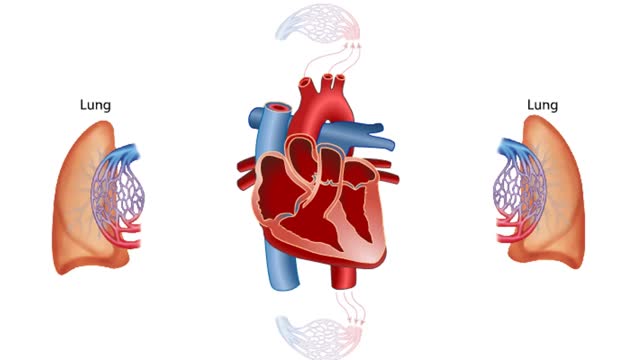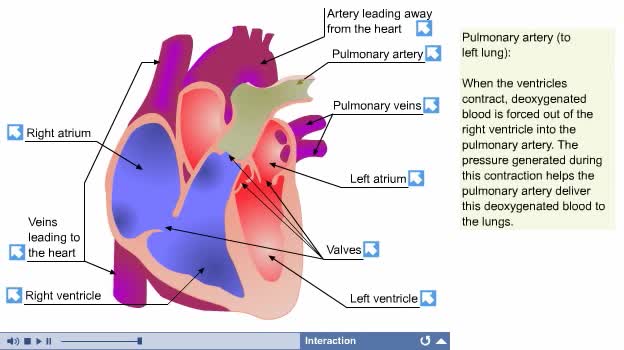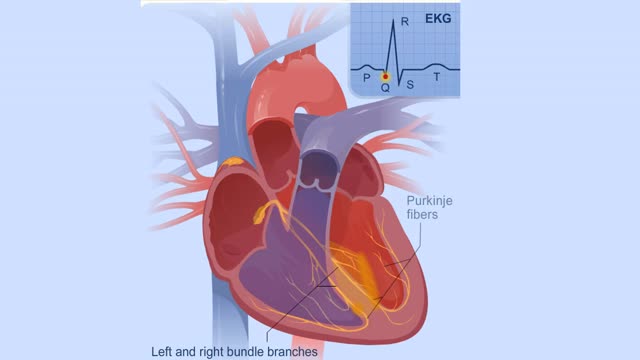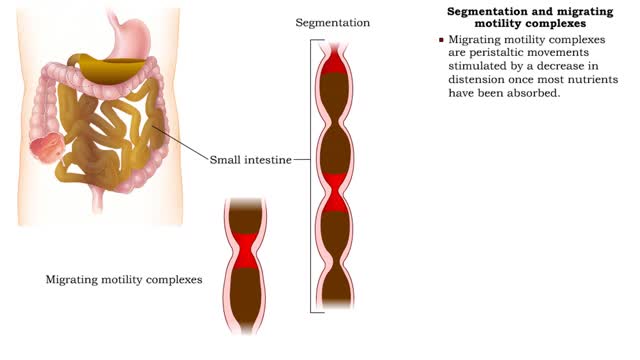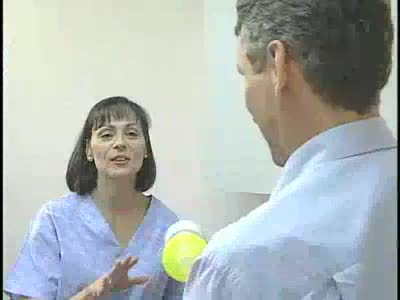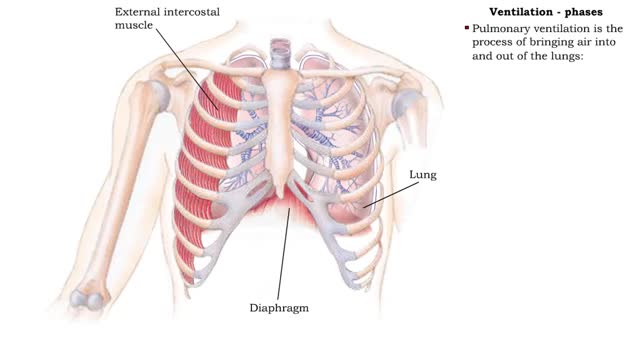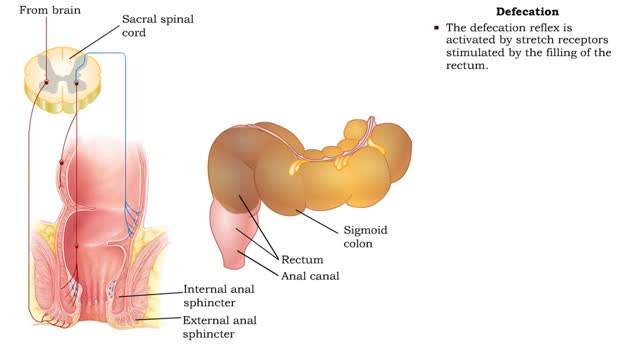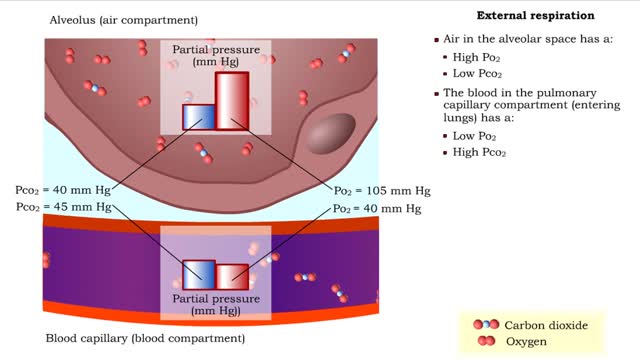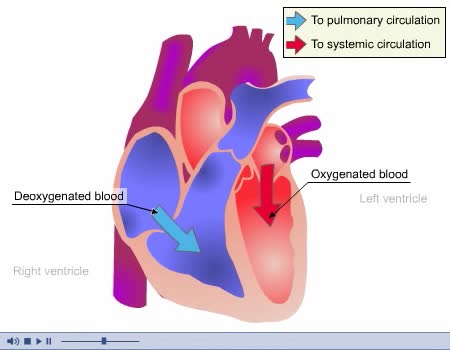Search Results
Results for: 'pulmonary valve'
Blood Flow through the Human Heart
By: HWC, Views: 11578
The heart is the pump of the human circulatory system. The left side of the heart has two connected chambers, the left atrium and the left ventricle. The right side of the heart also has two connected chambers, the right atrium and the right ventricle. These two sides, or pumps, of the heart are ...
By: Administrator, Views: 14816
Circulation of blood through the chambers of the heart Septum divides heart into the right and left heart. Each side contains an upper and lower chamber: Atria, or upper chambers, receive blood. Ventricles, or lower chambers, pump blood. Valves control intake and outflow of blood in chamber...
Electrical Conduction System of the Heart
By: HWC, Views: 10820
Your heart is a muscle that works continuously, much like a pump. Each beat of your heart is set in motion by an electrical signal from within your heart muscle. The electrical activity is recorded by an electrocardiogram. known as an EKG or ECG. Each beat of your heart begins with an electric...
Segmentation and migrating motility complexes & Gastroileal reflex
By: HWC, Views: 11529
• Within a few hours, most of the stomach contents are in the duodenum. • Distension of stretch receptors in the small intestine activates a reflex that stimulates segmentation, a mixing movement. • During segmentation, sections of the intestine are constricted. • This movement incr...
By: Administrator, Views: 14810
Spirometry is a common test used to assess how well your lungs work by measuring how much air you inhale, how much you exhale and how quickly you exhale. Spirometry is used to diagnose asthma, chronic obstructive pulmonary disease (COPD) and other conditions that affect breathing
Ventilation - phases and driving forces
By: HWC, Views: 11818
Respiration is the exchange of gases between the atmosphere, blood, and cells The combination of 3 processes is required for respiration to occur Ventilation (breathing) External (pulmonary) respiration Internal (tissue) respiration The cardiovascular system assists the respiratory system b...
Haustral churning, Gastrocolic reflex and mass peristalsis & Defecation
By: HWC, Views: 12084
• As the cecum becomes filled and distends, a local reflex causes: • Closure of the ileocecal valve. • Activation of haustral churning. • Haustral churning mixes the chyme, which helps absorption of water, salts, and vitamins. • Haustral churning propels the contents of the colo...
Gas exchange - partial pressure, locations, external and internal respiration
By: HWC, Views: 11850
▪ In a mixture, each individual gas exerts a pressure that is proportional to the concentration of that gas within the mixture. • This part of the total pressure is called a "partial pressure". • A gas moves along the part of the pressure gradient determined by its own concentration. ...
By: Administrator, Views: 14693
Prior to atrial systole, blood has been flowing passively from the atrium into the ventricle through the open AV valve. During atrial systole the atrium contracts and tops off the volume in the ventricle with only a small amount of blood. Atrial contraction is complete before the ventricle begins...
Advertisement



